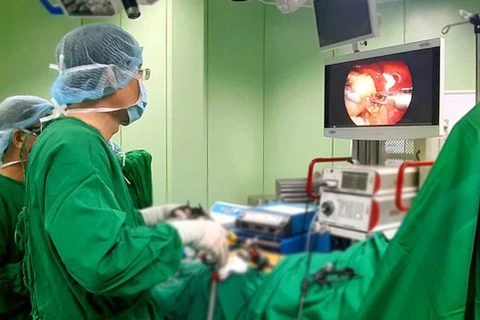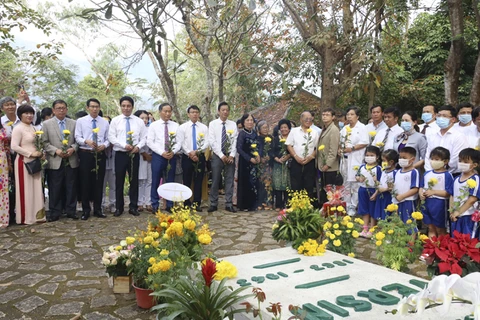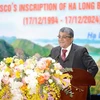Khanh Hoa (VNA) – The house where Alexandre Yersin, a Swiss-born doctor and bacteriologist, lived in and worked in the central coastal province of Khanh Hoa has been included in the cluster of national historical relic sites dedicated to him.
Minister of Culture, Sports and Tourism Nguyen Van Hung issued Decision No. 699/QD-BVHTTDL on the recognition of the house on Hon Ba Mount in Suoi Cat commune, Cam Lam district.
Yersin (1863-1943) studied medicine in France, and then became a bacteriologist and an adventurer. He arrived in Khanh Hoa’s Nha Trang city in 1891 to work and lived there until his passing. The doctor founded the Nha Trang Pasteur Institute in 1895, the Hanoi Pasteur Institute in 1926, and the Da Lat Pasteur Institute in 1936. Yersin was also the founder and the first principal of the Indochina Medicine School, now the Hanoi Medical University and the Hanoi University of Pharmacy.
He grew many industrial trees and medicinal plants in Suoi Dau, Khanh Hoa, and discovered Hon Ba Mount and the Lang Biang Plateau in the Central Highlands province of Lam Dong.
Yersin was honoured with the title of “Honorary Citizen of Vietnam” by the Vietnamese government in 2013.
The house where Yersin lived in and conducted experiments and scientific research is about 60km southwest of Nha Trang city. However, it was destroyed over time, and Khanh Hoa then built another on the old foundation with the same architecture and materials in memory of the doctor.
His grave in Suoi Dau and his museum at the Nha Trang Pasteur Institute were recognised as national historical relic sites by the Ministry of Culture - Information, Sports and Tourism, now the Ministry of Culture, Sports and Tourism, in 1990.
More than 10 years ago, Khanh Hoa also constructed a park dedicated to the doctor near the Nha Trang coast./.
Minister of Culture, Sports and Tourism Nguyen Van Hung issued Decision No. 699/QD-BVHTTDL on the recognition of the house on Hon Ba Mount in Suoi Cat commune, Cam Lam district.
Yersin (1863-1943) studied medicine in France, and then became a bacteriologist and an adventurer. He arrived in Khanh Hoa’s Nha Trang city in 1891 to work and lived there until his passing. The doctor founded the Nha Trang Pasteur Institute in 1895, the Hanoi Pasteur Institute in 1926, and the Da Lat Pasteur Institute in 1936. Yersin was also the founder and the first principal of the Indochina Medicine School, now the Hanoi Medical University and the Hanoi University of Pharmacy.
He grew many industrial trees and medicinal plants in Suoi Dau, Khanh Hoa, and discovered Hon Ba Mount and the Lang Biang Plateau in the Central Highlands province of Lam Dong.
Yersin was honoured with the title of “Honorary Citizen of Vietnam” by the Vietnamese government in 2013.
The house where Yersin lived in and conducted experiments and scientific research is about 60km southwest of Nha Trang city. However, it was destroyed over time, and Khanh Hoa then built another on the old foundation with the same architecture and materials in memory of the doctor.
His grave in Suoi Dau and his museum at the Nha Trang Pasteur Institute were recognised as national historical relic sites by the Ministry of Culture - Information, Sports and Tourism, now the Ministry of Culture, Sports and Tourism, in 1990.
More than 10 years ago, Khanh Hoa also constructed a park dedicated to the doctor near the Nha Trang coast./.
VNA























